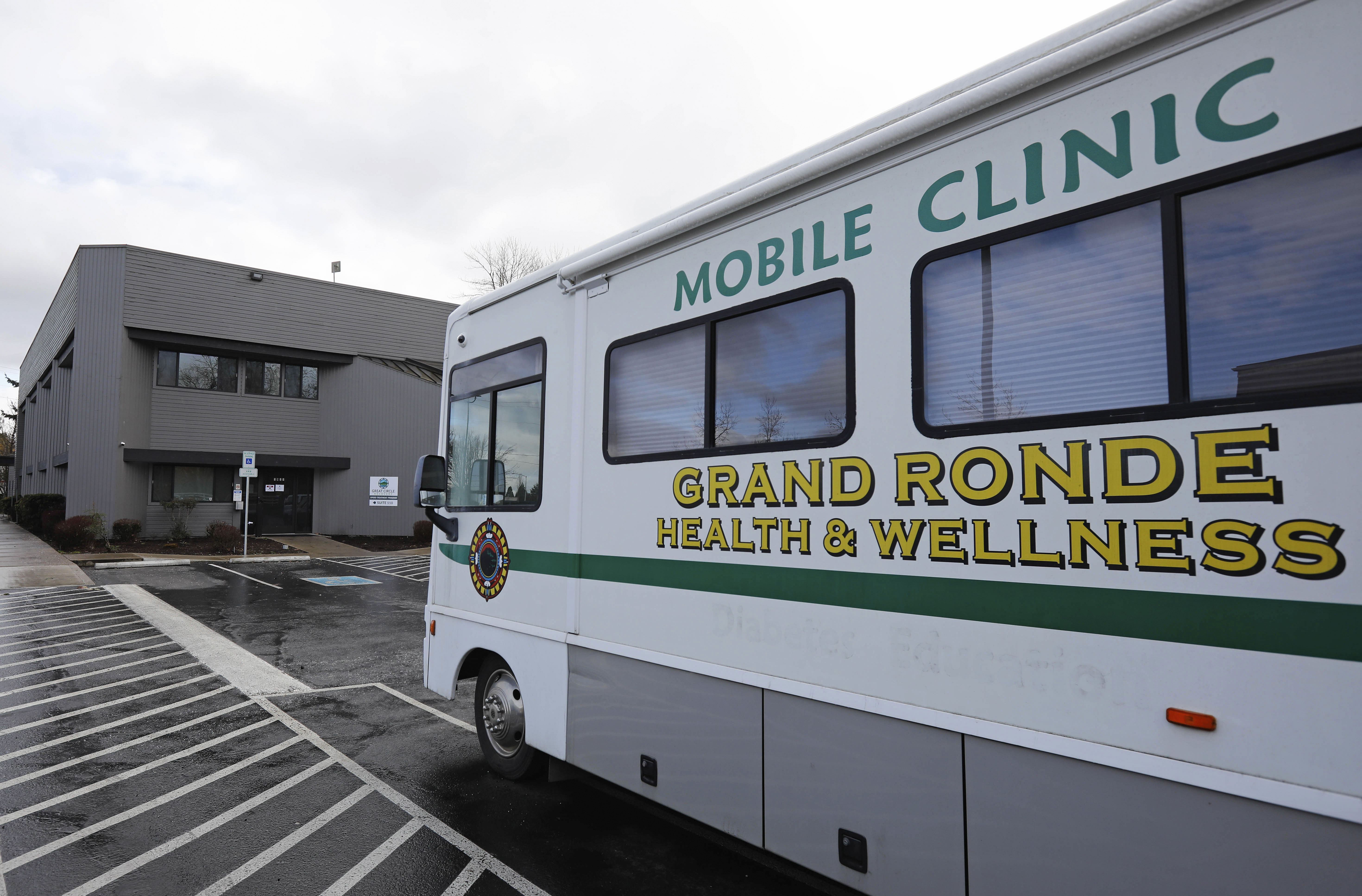Health & Education
Great Circle Recovery successfully serving more than 200 clients

By Danielle Harrison
Smoke Signals staff writer
SALEM -- Grand Ronde’s newest addition to help Tribal members battle opioid use disorder seems to be a resounding success: Less than a year after it opened, more than 200 clients have accessed the services of Great Circle Recovery Center in Salem, an outpatient medication-assisted treatment clinic and the first Tribally operated facility of its kind in Oregon.
During a Legislative Action Committee meeting on Tuesday, Feb. 1, Tribal Council member Kathleen George spoke about how Great Circle Recovery is meeting a crucial need in the area.
“There are more than 200 regular, participating clients on paths to recovery,” George said. “Recovery is a long and complex road, and it is absolutely amazing to know there are so many people (receiving) this assistance. It was what we wanted and our vision for providing this support. Many clients feel that this is a different experience … they know they are cared about personally and it sounds like it is having a tremendous effect.”
The Tribe began looking into offering medication-assisted treatment in the wake of the opioid crisis that swept through the United States beginning in the early 2000s. The crisis led to millions of people with addiction problems, some of whom were not helped by traditional abstinence-based, 12-step programs.
Some dismiss medication-assisted treatment as “swapping one drug for another,” which Great Circle Recovery Center Operations Director Jennifer Worth noted in a past Smoke Signals article is a common misconception.
“Many are confused by the concept of medication-assisted treatment,” Worth said. “It doesn’t mean replacing one drug for another. It’s a form of treatment that minimizes risk and meets all people where they are at. It cuts down on and eventually helps to end their use. Many people are overdosing and dying, or hiding in their addictions to pain medications or use of illicit opioids, like heroin, in secret due to shame. We do not judge. We work to take away stigma and meet people with a warm, caring mindset. You can’t heal until you find safety. … Great Circle is about welcoming Tribal members and the larger community into a small holistic healing environment.”
In addition to the medication piece, the clinic also provides a wound care center for treatment of sores and abscesses that are often a component of drug use, as well as child care, medical transport, peer support specialists, group therapy, smudging and art therapy with cultural components.
When someone visits Great Circle Recovery seeking help, the goal is to get them in immediately and decrease the possibility of an overdose instead of requiring them to wait days or weeks for treatment.
Executive Director of Health Services Kelly Rowe said there is “a lot to be proud of” at Great Circle Recovery.
“We’ve had a steady increase in the number of individuals that we serve, and our participation rate has gotten as high as 73 percent,” Rowe said. “This means our clients are participating more and staying longer in our services. It has grown exponentially over time and is higher than standard medically assisted treatment facilities. I truly believe that more individuals are staying with our program because of our commitment to a comprehensive and culturally appropriate treatment, and because they know we care about them and their recovery.”
Rowe said she is hopeful that the long-awaited Portland MAT clinic will open later this year, pending approval from the city. Tribal Council recently approved more than $2 million to renovate an old dental office on 82nd Avenue that will be the clinic site.
“We are still waiting for construction permits from the city of Portland,” Rowe said. “Once we have those, we will begin the remodeling process. Our hope is that it will open sometime this year. We anticipate that the Portland facility will be similar in capacity as the Salem clinic.”
Medication-assisted treatment is not new. Methadone, the most commonly used form, has been utilized to treat opioid dependence since the 1950s. Buprenorphine was developed in the 1960s, but not offered to patients battling drug addictions until 1995. Suboxone has been prescribed since the early 2000s. All reduce withdrawal symptoms and help control drug cravings.
According to the National Institutes of Health, Native communities have been deeply affected by the opioid crisis, and many have been overwhelmed by opioid overdoses, deaths and a strained health care system. This has led to some communities offering a two-tiered treatment approach, which includes a culturally centered aspect combined with medication.
Although COVID-19 required a major pivot, medication-assisted treatment for Tribal members in the metropolitan area remained a goal of the Tribe’s Health & Wellness Center in 2020, especially as overdose numbers skyrocketed nationwide during the pandemic. A combination of pandemic-related isolation, stress, financial problems and loneliness also led to many relapses during this time.
